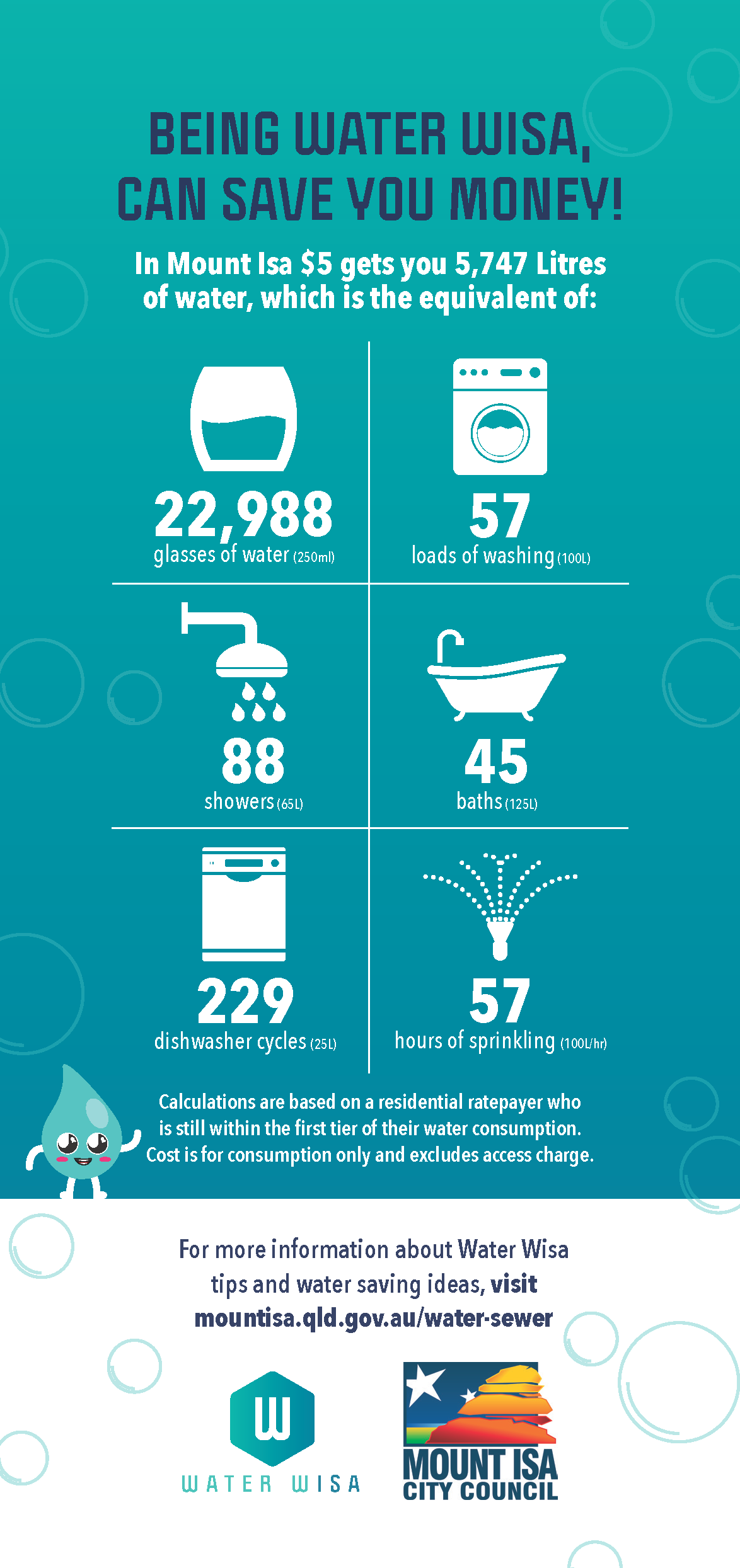Water Conservation
How to Save Water
In the home
- Install a dual-flush toilet. You can save up to 8 litres of water every time you flush.
- Divert grey water from your washing machine for immediate use in the garden (except on vegetables).
- Take short showers and install water-saver heads - an 8-minute shower uses 120 litres of water.
- Place a few drops of food colour in the toilet cistern and wait for 15 minutes. If colour appears in the bowl you have a leak. This can waste up to 16,000 litres of water per year.
- Don't run a half-empty dishwasher - it still takes at least 50 litres of water to use, whether it is full or not.
- Turn off the tap when brushing your teeth or shaving, and save between 5 and 15 litres of water each time.
- Match the load setting on the washing machine to the size of the load.
- On average, top-loading washing machines use up to 60% more water, 50% more detergent and 40% more electricity than front-loading washing machines.
- Choose household appliances that have a high water efficiency rating - 3 stars or better.
- Use tap aerator devices - they are inexpensive and can reduce water flow by 50%.
In the garden
- Improve your soil - mix in plenty of organic matter to both feed your plants and help the soil hold moisture.
- Install sub-surface irrigation, if possible, as it waters the roots, is low maintenance and reduces evaporation.
- Choose the correct plants. Look around town to see what is suited to our local climate.
- Go mad with mulch. It should be at least 10cm thick and will decrease water loss and reduce weed growth.
- Deal with weeds. They use up precious water and steal nutrients from the soil.
- Use a timer on the tap. This will ensure taps are not left running accidentally.
- Only water when the plants need moisture, and stick to watering times early in the morning or later in the evening.
- Lawns use 9 times more water than a garden, so minimise lawn and mix with gardens or rocks.
- Don't over water, as waterlogged soil encourages the growth of bacteria and fungi, which cause disease in plants.
- Prune shrubs after spring. This reduces the leaf area and reduces the shrub's water loss.
- Use potting mix with high organic matter content and wetting agents in your pots. This will help retain moisture.
- Compost suitable food scraps - compost enriches the soil by helping it absorb and hold water.
For the pool
- A properly fitted pool blanket/spa cover can stop up to 97% of evaporation. This also reduces the amount of chemicals required to treat the water, and may reduce the amount of electricity required for heating.
- Check for leaks - a tiny leak could result in a large amount of water loss. (Mark the level at the skimmer box and check 24 hours later - water loss should be no more than 3cm daily.)
- Provide shade over your pool. This will also reduce evaporation and protect swimmers from the sun's rays.
Water Wisa
Following the changes to the water charging methodology in recent years, Mount Isa is now in line with the recommended approach under National Water Reform initiatives. So, rather than paying for a flat 950kL allocation in your rates notice, you are now only charged for what you use, giving you more control over what you pay.

















